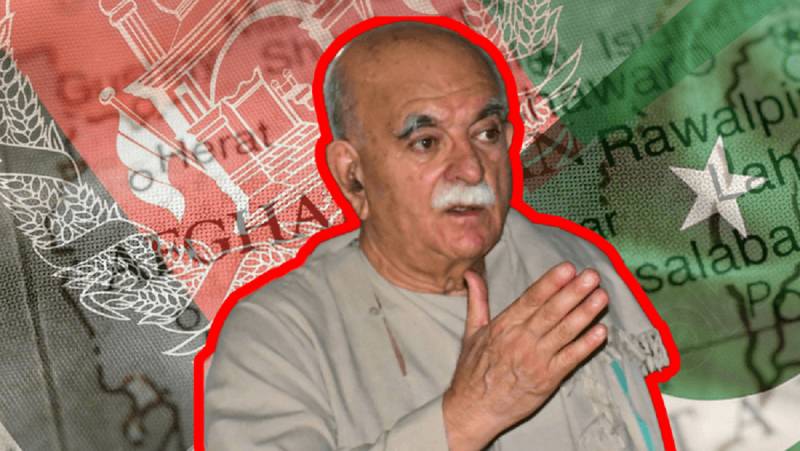
With Pakistan stepping up deportations of thousands of Afghans, illegals, refugees or those born in Pakistan, Pashtun nationalists on Sunday issued a warning that the continuation of these illegal measures would only create greater hostility with Afghanistan in the long run.
This was stated by Pakhtunkhwa Milli Awami Party (PkMAP) Chairman Mahmood Khan Achakzai on Sunday at a press conference held at the Quetta press club.
Talking about Islamabad's current policy of deporting all illegal residents, he asserted that the issue had transformed into an international humanitarian concern. With Afghan refugees, the vast majority of people affected by the government's policy, he emphasised that this issue should not be divorced from the internationally recognised definitions of refugees.
While acknowledging that Pakistan is not a signatory to the international refugee conventions, its past acceptance of millions of refugees under the international umbrella establishes a strong precedent. Moreover, he said there was an implied acceptance of the convention by Pakistan and, thus, an obligation to adhere to the protocols and conventions governing refugee affairs.
Achakzai criticised the government's recent policy of refoulement, denouncing it as a breach of both international conventions and the nation's naturalisation laws.
The only purpose such actions would serve would be to tarnish Pakistan's image internationally while also fostering animosity between Afghanistan and Pakistan, he warned.
In cracking down on Afghan refugees, Achackzai said that law enforcement agencies in various cities were arresting Pashtuns hailing from the Pakistani side of the Durand Line without probable cause, suggesting that the exercise was quickly descending into a nightmare.
Turning his attention to the issue of cross-border movement, he gave its historical context and how, historically, Pashtuns who lived on both sides of the Durand Line enjoyed a degree of freedom of movement. This border, he said, not only separates two nations and a piece of land but also divides tribes and families. He referred to the Treaty of Gandamak (1893) and the subsequent 'Act of Independence' to underscore the acceptance of this reality.
The Act of Independence, he stated, clearly delineates the geographical boundaries of Pakistan.
Until very recently, he said, many Afghan Pashtun tribes were engaged in their seasonal migration across the Durand Line.
"These are very tricky issues, and the rulers should not tinker with it," he suggested. He claimed that when Islamabad did away with the special status of the erstwhile federally administered tribal areas (FATA) in 2018, India took a cue from it and proceeded to annex Kashmir by changing its special status in August 2019.
Expressing concerns over the imposition of a blanket restriction on all cross-border movement, Achakzai asserted that it has generated significant discontent amongst Pashtuns, particularly those residing in areas adjoining the border with Pakistan.
One manifestation of this, he pointed out, was the ongoing sit-in in Chaman. He announced his intention to personally participate in the demonstration to express his solidarity.
Achakzai urged the government to refrain from criminalising cross-border trade under the pretext of stopping smuggling. Instead, he advocated regularising and facilitating it to harness its financial benefits through customs duties and taxes. In this regard, Achakzai recommended the establishment of custom houses at six strategic points along the Durand Line. He added that a committee chaired by Chaudhry Shujaat and Mushahid had previously made similar recommendations.
Achakzai underscored the importance of cultivating relations based on peaceful coexistence and mutual trust with neighbouring states to address Pakistan's economic and security concerns.
Talking about the ongoing political situation, he asserted that conventional elections alone are insufficient to address the current political crisis affecting the country.
He referenced the elections of 1970, 1977, and 1997, and argued that without addressing the fundamental issue of sovereign power and its rightful custodianship, controlled and constrained elections are unlikely to yield results indifferent from those which have been witnessed in the past.
For Pakistan to regain stability, he emphasised that it must wholeheartedly recognise the sovereignty of the Constitution and the supremacy of the parliament.

